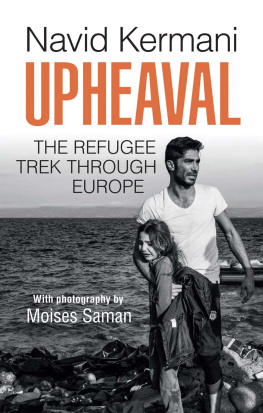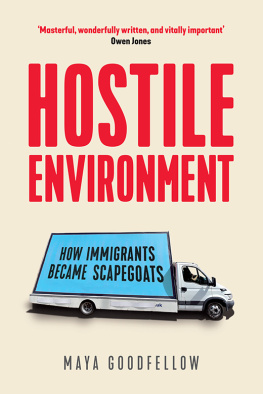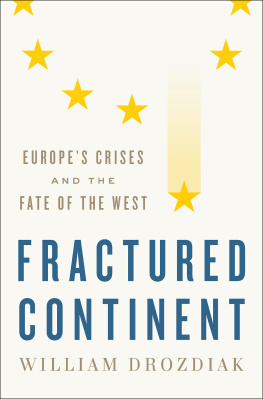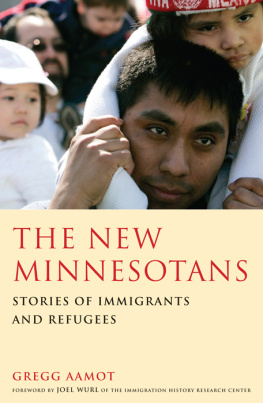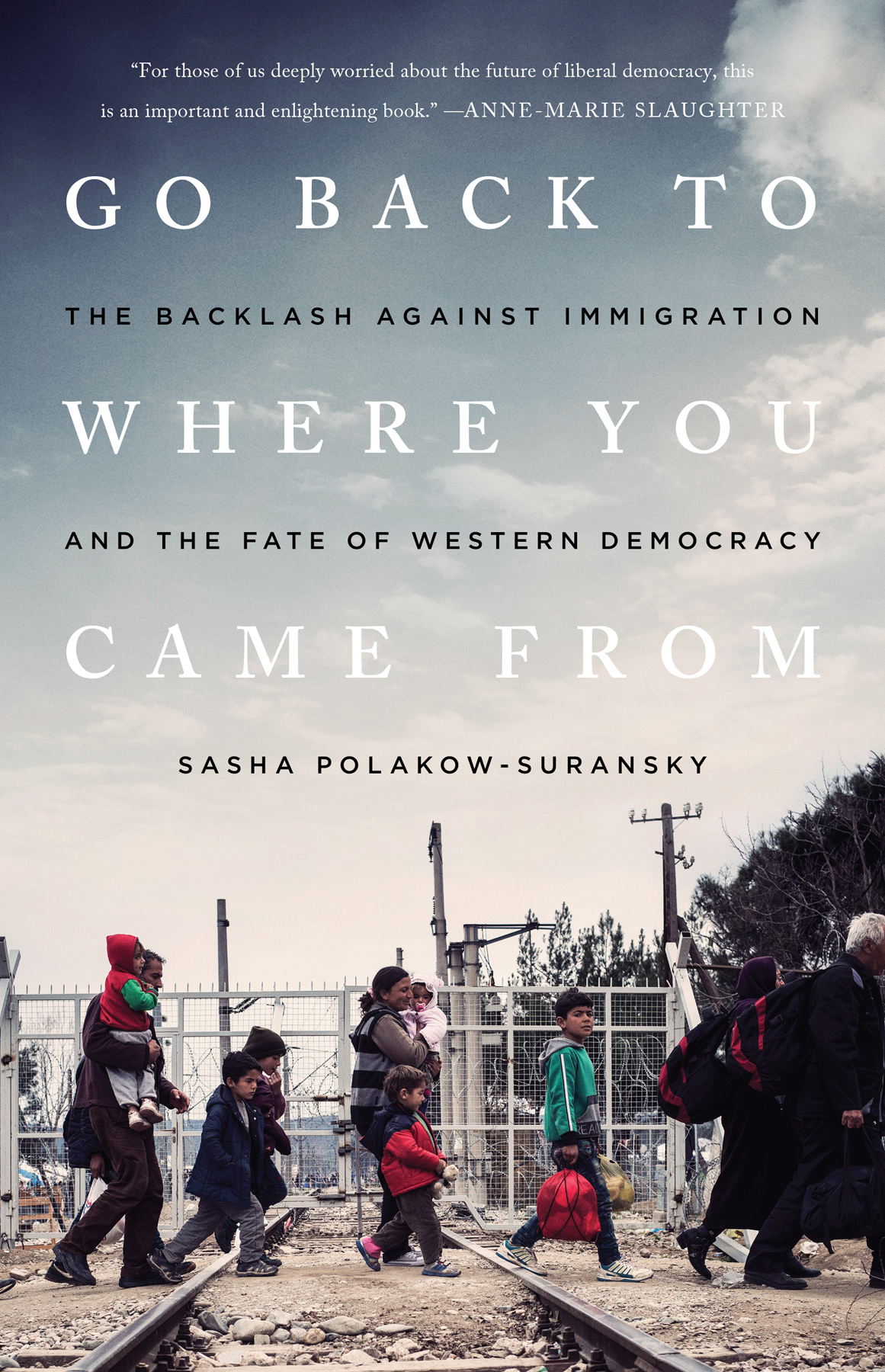Copyright 2017 by Sasha Polakow-Suransky
Hachette Book Group supports the right to free expression and the value of copyright. The purpose of copyright is to encourage writers and artists to produce the creative works that enrich our culture.
The scanning, uploading, and distribution of this book without permission is a theft of the authors intellectual property. If you would like permission to use material from the book (other than for review purposes), please contact permissions@hbgusa.com. Thank you for your support of the authors rights.
Nation Books
116 East 16th Street, 8th Floor
New York, NY 10003
www.publicaffairsbooks.com/nation-books
@NationBooks
First Edition: October 2017
Published by Nation Books, an imprint of Perseus Books, LLC, a subsidiary of Hachette Book Group, Inc.
Nation Books is a co-publishing venture of the Nation Institute and Perseus Books.
The Hachette Speakers Bureau provides a wide range of authors for speaking events. To find out more, go to www.hachettespeakersbureau.com or call (866) 376-6591.
The publisher is not responsible for websites (or their content) that are not owned by the publisher.
Library of Congress Cataloging-in-Publication Data
Names: Polakow-Suransky, Sasha, 1979 author.
Title: Go back to where you came from : the backlash against immigration and the fate of western democracy / Sasha Polakow-Suransky.
Description: First edition. | New York : Nation Books, [2017] | Includes bibliographical references and index.
Identifiers: LCCN 2017021269| ISBN 9781568585925 (HC) | ISBN 9781568585932 (EB)
Subjects: LCSH: Europe--Emigration and immigration--Public opinion. | United States--Emigration and immigration--Public opinion. | Europe--Emigration and immigration--Government policy. | United States--Emigration and immigration--Government policy. | Populism--Europe. | Populism--United States. | Identity politics--Europe. | Identity politics--United States. | Europe--Politics and government--21st century. | United States--Politics and government--21st century.
Classification: LCC JV7590 .P625 2017 | DDC 304.8/4--dc23
LC record available at https://lccn.loc.gov/2017021269
ISBNs: 978-1-56858-592-5 (hardcover), 978-1-56858-593-2 (ebook)
E3-20170912-JV-PC
In memory of Ton Beekman, who showed me the splendor and squalor of Europe
T HE FRENCH SOCCER STAR PATRICE EVRA HAD JUST PASSED THE BALL across midfield when the first blast shook the Stade de France, a few miles north of Paris, at 9:20 p.m. on November 13, 2015. It was the seventeenth minute of a match between Frances national soccer team and Germanys. After a moment of confusion, the crowd cheered, thinking they were hearing fireworks, and the referees allowed the teams to play on.
At 9:25, a team of gunmen mowed down a group of diners at a small Cambodian restaurant in Pariss trendy tenth arrondissement and in a bar across the street. A few minutes later, at 9:30, a second blast shook the Stade de France. President Franois Hollande took an urgent phone call from his seat at the stadium. The blasts were not fireworks, it turned out, but suicide bombs. Hollandes aides realized a major assault on Paris was under way, and he was soon whisked away to safety.
For the next ten minutes, the attackers left a trail of carnage and dozens of dead as they moved toward the Place de la Rpublique, attacking another bar and a restaurant, before one bomber detonated his suicide vest at the Comptoir Voltaire restaurant.
At 9:40, the deadliest of the attacks hit the Bataclan, a popular concert hall where the Eagles of Death Metal were playing to a sold-out crowd of 1,500. For two hours before the shooting began, a group of men sat in a small VW Polo a few hundred meters from the venue. One man recalls seeing them trying to park and went to tell them theyd get a ticket. The men gave him a cold look and didnt roll down the window. They were wearing jackets, he told journalists, and seemed to be overweight and having trouble turning the steering wheel. They had a lost look to them, as if they were drugged. Only later did the man realize they looked bundled up because they had been wearing suicide vests.
When the gunmen in the car entered the concert hall, they fired indiscriminately. Most of the crowd fled for the exits, but dozens were shot. A pregnant woman dangled from a window ledge; some played dead for hours on the floor. It was not until after midnight that police stormed the building and killed the attackers. By then, eighty-nine people were dead. Hollande declared the attacks a horror on national television and imposed Frances first nationwide state of emergency since the height of the Algerian war in 1961.
The shedding of blood in cosmopolitan Paris was met with shock and anger, coming just a few months after terrorists massacred twelve people at the offices of the French satirical magazine Charlie Hebdo. In France, a new intellectual undercurrent had already begun to paint Muslims as a fundamental threat to the republic, and the arguments only became more strident after the November 2015 attacks.
Michel Houellebecqs satirical novel Submission, which was featured on the cover of Charlie Hebdo the week of the massacre, became a best seller. It depicts a France governed by the Muslim Brotherhood after the Socialist Party and center right choose to back it in the 2022 election rather than allow the Front Nationals leader, Marine Le Pen, to come to power. In Houellebecqs darkly comic dystopia, Parisian women are veiled and the Sorbonne is run by Saudi sheikhs.
The novel appeared in 2015, at a moment when the French intellectual firmament was already saturated with paeans to tradition and warnings of cultural decline. It was released soon after Alain Finkielkraut, one of Frances most prominent philosophers, published Lidentit malheureuse (The Unhappy Identity), which laments a country where those of solid French stock no longer feel at home among halal butchers and Arabic-speaking neighbors.
All these writers presented the idea of a relentless Islamic tsunami engulfing Europe culturally and demographically, an idea popularized during the 1990s by Bat Yeor, whose books conjured visions of a dark era of Muslim tyranny. Her views spread to a mainstream audience through the best-selling polemics of Bruce Bawer, an American literary critic and gay rights advocate living in Europe who became a leading voice on the anti-Muslim right.
The idea of Islam conquering Europe has become a trope on both sides of the Atlantic, gaining traction with a new generation of politicians like Geert Wilders and Marine Le Pen, and directly inspiring violent killers like Anders Behring Breivik in Norway. In July 2011, Breivik bombed a government building in Oslo, then disguised himself as a policeman and shot down seventy-seven people, mostly children, at a Social Democratic Party summer camp. Bawer responded to that bloodbath by lamenting the fact that Breivik had dealt a heavy blow to an urgent cause.
For many of those denouncing the presence of Islam in Europe, there is an intellectual forefather. Jean Raspail is ninety-two. His phone number is blocked, and he rarely receives visitors at his small apartment decorated with books and memorabilia from his travels. These days, the new right hails him as a prophet.
Raspails apocalyptic 1973 novel, The Camp of the Saints, envisioned boats full of scraggy branches, brown and black and fleshless Gandhi-arms descending on Frances shores. Raspail writes of an anthill slashed open and an endless cascade of human flesh. Every one of the boats, teeming, gushing with bodies, like a tub brimming over. Yes, the Third World had started to overflow its banks, and the West was its sewer.


